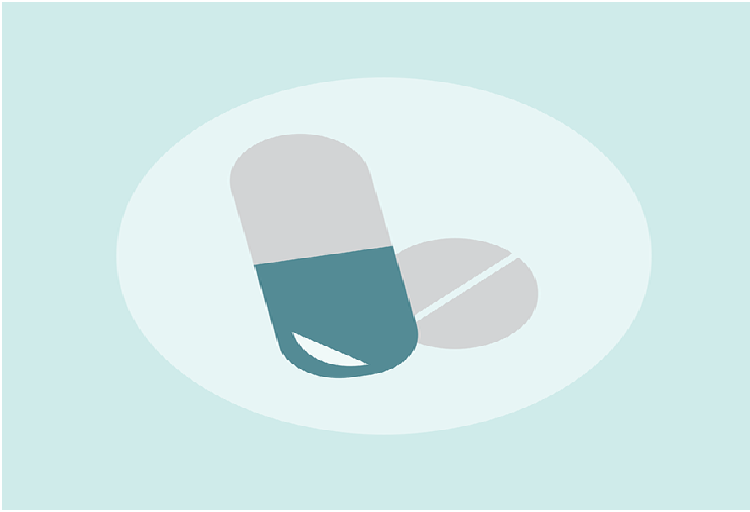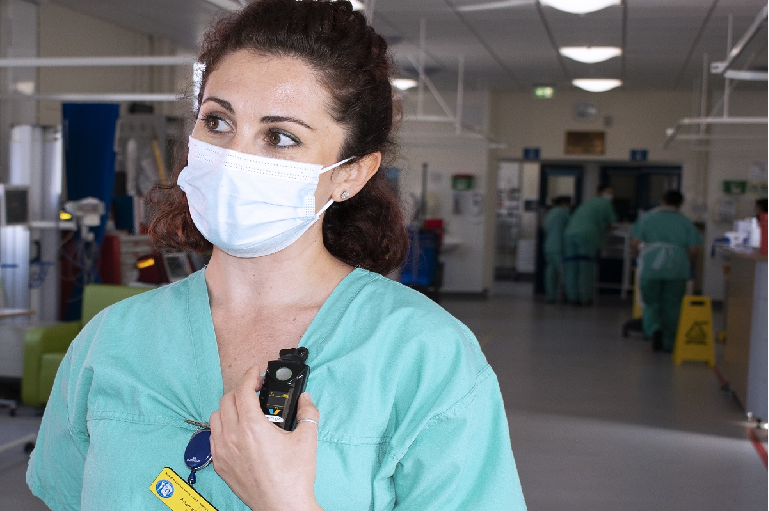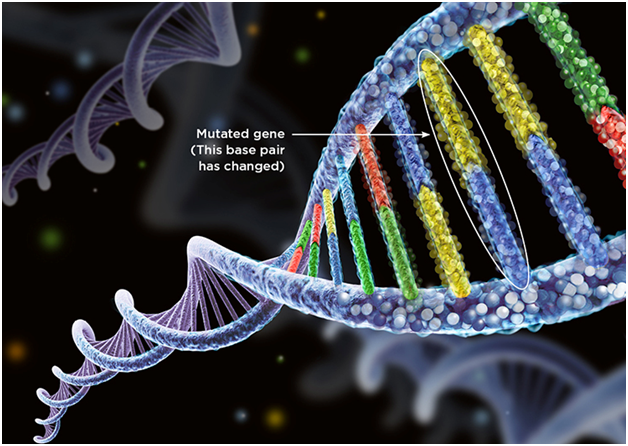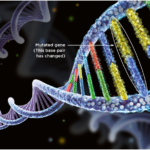|
||||
|
A very exciting new era has arrived for Praxis Electronic Medical Records. While the Healthcare IT Industry has been promoting ‘templates’ as an acceptable method for documenting medicine electronically, Praxis EMR, for over twenty years, has developed a more ambitious approach; one that allows you to chart your own medicine, your own way. The Concept Processor inside Praxis EMR, is an artificial intelligence engine that learns from your previous cases and allows you to document medicine consistently faster and better. Makers of templates claim that the drawback to the more elegant Praxis approach is the effort required to create your own knowledge base when you first start. They argue that the Concept Processing learning curve is too great. Although logically, using your own approach makes good sense, the claim is that it is far quicker and easier to rely on pre-designed templates made by someone else. Furthermore, only with templates, the argument follows, will physicians practice “correct” medicine. Our clients never believed in the use of boilerplates to document their own medical thinking. Most Praxis EMR clients believe that even if the concept processing approach required weeks of initial set-up, the powerful results would be well worth the effort. And, reality has shown that these concerns were unfounded. Praxis clients have discovered that the concept processing learning curve is quite remarkable because each one of us has a “comfort zone” of expressions and thoughts we tend to use. Indeed, those who use Praxis become avid enthusiasts of its physician empowering technology. Today, with the arrival of the Praxis Knowledge Exchanger, the entire argument is moot. The Praxis Knowledge Exchanger enables physicians to instantly benefit from the medical knowledge of their peers while maintaining a completely separate Praxis Knowledge Base that self-learns just as before. Complete external databases crafted from years of real-life medical learning are ready at every Praxis user’s fingertips, no matter what your specialty. We believe that the Praxis Knowledge Exchanger will make the use of templates obsolete. The Praxis Knowledge Exchanger is vital for:
The Knowledge Exchanger works the way a medical knowledge base should work—as an auxiliary library instantly ready for use but always independent from your own Knowledge Base. When you import an item from an auxiliary external Knowledge Base, you may instantly adapt it to your methodology and your way of documenting a case. From that point forward, the imported text incorporates itself into your own Knowledge Base, to assist you with other cases at the speed of your mind. Knowledge Bases may be obtained from colleagues in your clinic or specialty, as well as from the many current Praxis EMR users around the country. Indeed, you are not limited to the number of libraries you can import. And, when you import a library, it is always temporary. You simply use what you need, adapt it to your style of writing and practice, and discard the rest. For instance, a given user may limit an import to an excellent discussion of abdominal pain, or a case presentation of Primary Hypertension, or simply a patient instruction or questionnaire. The choice of what to use is entirely up to you, the physician. Why Exchange Knowledge… What is a Template? A template is a structured boilerplate of a theoretical text case or part of a case developed by “experts” and packaged by medical specialty. Most template systems consist of a series of electronic forms, boilerplates, and drop-down menus, and attempt to catalogue patients and diseases into preset molds presenting fields that the user is required to fill out repetitively for each encounter. Typical medical scenarios are normally divided into evaluation, diagnostic and therapeutic classifications, along with macros of Objective Findings and Plan that might likely be found in your practice. For example, in Family Practice, there might be a template for “Headache,” which describes a typical presentation, including related symptoms and physical findings for a normal Neurological exam, etc. Then, the template may include typical therapies used to handle these headaches. In most cases, the end result is a series of “pick lists” from which you select items such as physical findings, symptoms, plans, etc., and which you are told can be tailored to more closely reflect your own methodology and expressions. However, as outlined in detail at: (Why Templates Don’t Work) there are fundamental systemic problems when using templates in medicine. Among the most serious, is the reality that even the best and ‘smartest’ template is only smart enough to recall diagnoses with evaluations and treatments in a preset way. Indeed, the complexities of medicine; that is, your personal approach to the practice of medicine, demands infinitely more. If a case could really be described and treated in only one way by everyone, then the template approach would not be unreasonable. But, this is far from the case. There is no such thing as one case of headache, one case of diabetes, or one case of hypertension, but rather a myriad of different cases and approaches. This is, in fact, what the Art of Medicine is all about. Not only do cases with identical diagnoses present with a wide variety of histories, objective findings, and treatments, but also, no two doctors practice medicine the same way. Each physician has—through the practice of medicine—developed his or her own personal approach (often subconscious) that is always present when making medical decisions. These decisions are never random for the practicing physician, but follow a pattern dictated by years of experience—experience from which (unlike the case of a boilerplate template) the Concept Processor is constantly learning so it can supply the right words-your right words—exactly at the right time. The second systemic problem with templates that-can-be-edited (a system that regurgitates a case based on a diagnosis) is that lists of possibility eventually become impossibly large, making it a truly daunting task to locate the correct one, especially when you may not even be aware what your patient has! Just ask any long time user of a template!! The most pernicious aspect of the template approach, however, is that it is limited to copying the paper document by using a computer as a glorified typewriter. In doing so, it defeats the extraordinary opportunity presented by the computer to work dynamically on your behalf. An electronic chart is far more than a paper document. With the correct approach, your own patient record should help you make the right decisions, present you with timely reminders, and carry out many clinical tasks on your behalf. The computer can do all of these with extraordinary speed and minimal effort because it can learn from you. Boilerplates are incapable of thinking like you. That’s why templates fail in the clinical setting. With Praxis, however, your chart comes alive! Perceived Advantage of Templates Why would any thoughtful physician ever willingly choose to use a template to document their visits on a daily basis? The answer is simple: They look easy. Overall, the perceived advantage of template-based systems is that they function like electronic forms, where the user need only fill out the blanks for each patient. That template EMRs become progressively more cumbersome and rigid after daily use is usually not a consideration during start-up. The EMR industry maintains that templates are a solution because they create typical case situations so that the physician need not type free text. Other explanations have been given regarding preparing for P4P (Pay for Performance) schemes that propose “correct” templates with built-in practice guidelines. There is no evidence whatsoever to support this misguided approach. Indeed, the amount of time wasted trying to fit a template with a real-life patient is so enormous to make such a practice terribly frustrating. Until now, the Concept Processor arrived as a tabula rasa – an empty slate. However smart it becomes after initial use, it still requires time and effort on your part to load its basic clinical knowledge. The most common question we are asked from prospective clients is: “Praxis seems like a smarter approach, but how long will it take me to enter enough information so that it’s practical to use?” Although the answer to that question is “surprisingly little time!” to many physicians, templates have appeared to provide a “ready-made” second-best solution to their medical documentation needs. After all, most of the big health IT companies sell templates, all claiming to have better and more features. Solution: The Praxis Knowledge Exchanger It is obvious that the medical wealth created by our brilliant Praxis EMR clients should be available to all users so that the new user benefits immediately from a rapid and enriched start-up, while longtime Praxis users benefit from the knowledge of fellow practitioners, share their own clinical knowledge, and grow their own practical knowledge to take their charting to a higher plateau. Although Praxis appears to work “free-text,” the medical concepts within it are actually highly encapsulated into “units of thought.” Each unit of thought may be instantly reused with other patient encounters by a simple click of the mouse. In addition, through neural network technology, Praxis remembers every linkage, and automatically pulls the story together for you much faster than you could, every time. The issue was how to transmit this knowledge to new Praxis users without destroying the very freedom intrinsic to concept processing: the ability to document your own way. Three years after the release of Praxis Version 3—and after many years of development—we are pleased to announce that the Praxis Knowledge Exchanger is now here. How does the Knowledge Exchanger Differ From Templates? The Knowledge Exchanger works the way a medical knowledge base should work. It works as an auxiliary library instantly ready for use but always independent from your own knowledge base. As discussed earlier, Praxis turns text into units of thought at any level of abstraction: A SOAP Level such as a fever instruction, or a given drug protocol, up to an entire case. Upon selecting an imported item from an auxiliary external knowledge base, you may instantly adapt it to your methodology and your way of documenting a case. From that point on, the imported text incorporates itself into your own knowledge base text, to assist you with other cases at the speed of your mind whenever you need it. The knowledge bases may be derived from colleagues in your clinic or specialty, or from the many current Praxis EMR experts around the country. In fact, you are not limited to the number of libraries that you can import. And, when you import a library, it is always temporary. You simply use what you need, adapt it to your style of writing and practicing, and discard the rest. For instance, a given user may limit an import to an excellent discussion of abdominal pain, or a case presentation of Primary Hypertension, or simply a patient instruction or questionnaire. The choice of what to use is entirely up to you, the physician. The imported knowledge looks like “free text”, but is highly encapsulated and made ready for reuse at any time! Advantages to the Use of a Knowledge Exchanger As a new user of Praxis EMR, you need not start your system from scratch, as had been the case since we developed Praxis over 18 years ago. Indeed, now you can have your cake and eat it too! So for the initial user, this is a crucial advancement. Not only can you obtain the knowledge of expert Praxis users in your own specialty, you can also advance your learning of Praxis by using external knowledge bases as heuristic models to develop your own. You will immediately see how Praxis is being used in your specialty by experts in your field. And if you are not a new user, you will take advantage of sharing knowledge with fellow Praxis EMR users to enrich your own practice of medicine. In larger clinics, we’ve learned that there are always computer savvy doctors in the group, and others who only come along dragging their feet! Now, the Praxis Knowledge Exchanger permits the development effort done by those initial users to be eloquently transferred to the others in the practice, making their adoption compelling and easy. Praxis EMR breaks away from the many preconceptions about what documenting medicine should be about. For example: A diagnosis is not about what’s wrong with the patient. Rather, it’s about what you think is wrong with the patient. There is a subtle but powerful difference in this statement. Similarly, your patient does not write his own history: You write the history for the patient. The clinical history, therefore, is far more about how your mind works than what the patient said. The most intelligent writer in the world—absent a medical background—could not take a meaningful medical history from a patient, just like you could not when you first started your learning. What the patient says is transformed by your mind both by guiding the patient and by interpreting the statements and translating them into medically meaningful data. Your consciousness and your subconscious mind are guiding your history-taking all the time, no matter what medical schools say. This is the main reason why, that when you were a medical student it took you hours to write a clinical history that now you can now generate in a few minutes, if not seconds. After many years of practice, you know how to take a clinical history. The history is therefore always present within your mind. Praxis simply gets the verbiage out of your mind and into the computer. You are always in charge, but you chart far faster and smarter by not dealing with words, but with concepts. This is also why a template’s history always feels foreign to you even though you understand what it says: Because it is foreign to your mind and the way you think. The Praxis Concept Processor is a projection of YOUR mind. Yet, there is value in obtaining a similar history from a respected colleague and changing it instantly to suit your needs when you first review it. And as soon as you change it, the history becomes yours to re-use and grows organically your way for the future with other patients. Many of our colleagues have spent years with Praxis EMR, and many have purchased Praxis initially because they loved to write well. Their knowledge bases are extremely rich. How will these knowledge bases become available? The first step has been to provide the new software to our clients and request that they do sample cases with “imaginary” patients (John and Mary Imaginary). Demos are being generated to show these results. They will be added to our website and downloaded from there. If you like what you see, you simply download the knowledge base and then import it into your system. Will there be a cost for the use of these knowledge bases? Not initially. But, it is only fair for us to reimburse our licensing doctors who will be providing their knowledge to the world. It is their intellectual property after all. Currently there are no charges for incorporating Praxis knowledge bases while we test each of them for usability. As soon as possible, we plan to introduce an appropriate pricing mechanism for Praxis EMR knowledge bases across all specialties. Of course, incorporating a knowledge base from a Praxis colleague you know will always be free. Conclusion: Why use Templates? We know that some out there may still believe that there is an advantage to buying preset template verbiage from EMR manufacturers. However, we believe that when you try Praxis EMR, you will understand this is simply not the case. All you need to do is compare. We ask that you trust your own medicine, and the medicine of hundreds of long-time Praxis EMR users, and do it your own way. The only great clinical chart is the one you develop yourself. Now there is an effortless way to get started, and to get everyone else in your practice onboard too!
|
Knowledge Exchanger In Electronic Medical Records – A New Paradigm




































































